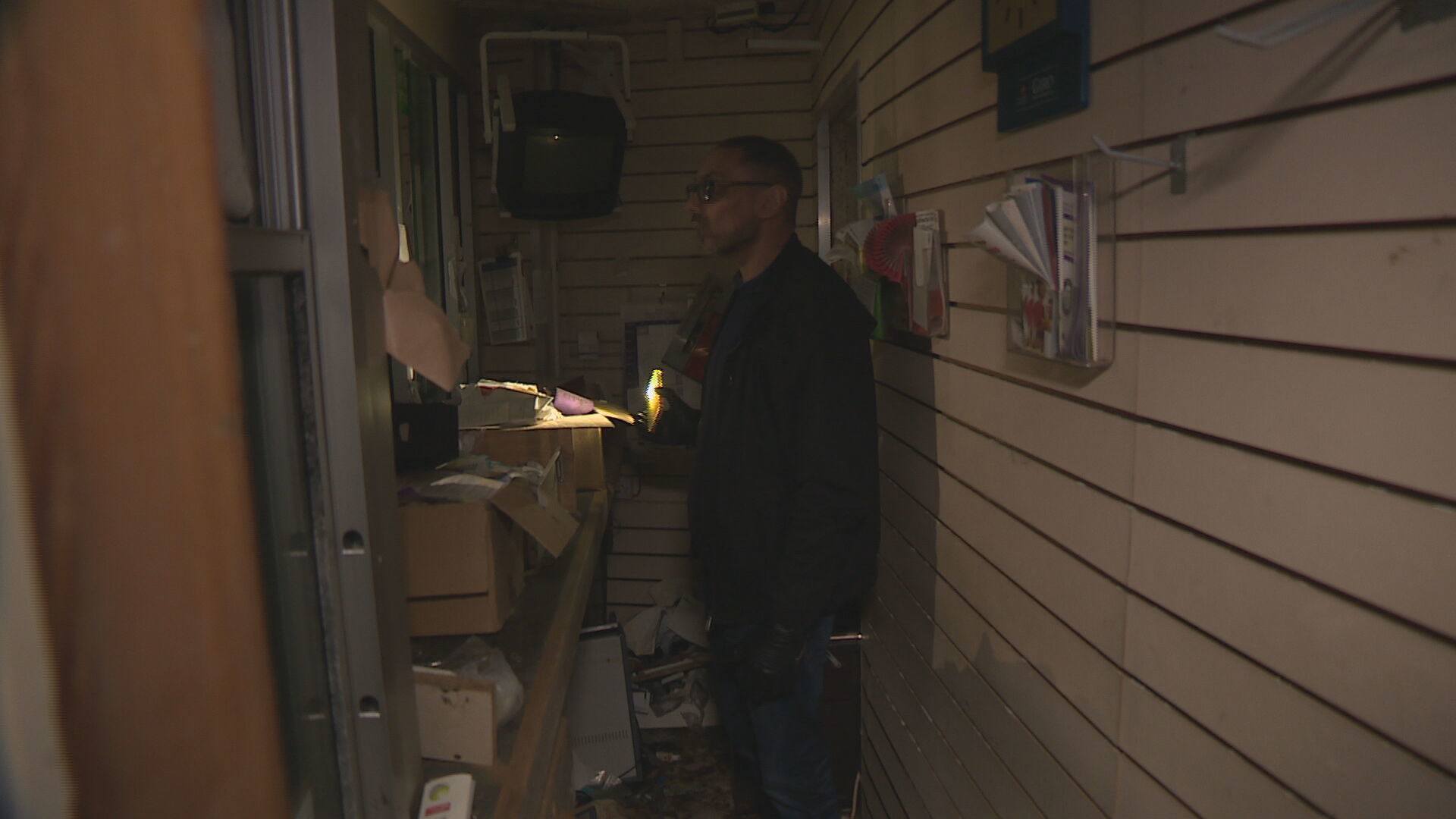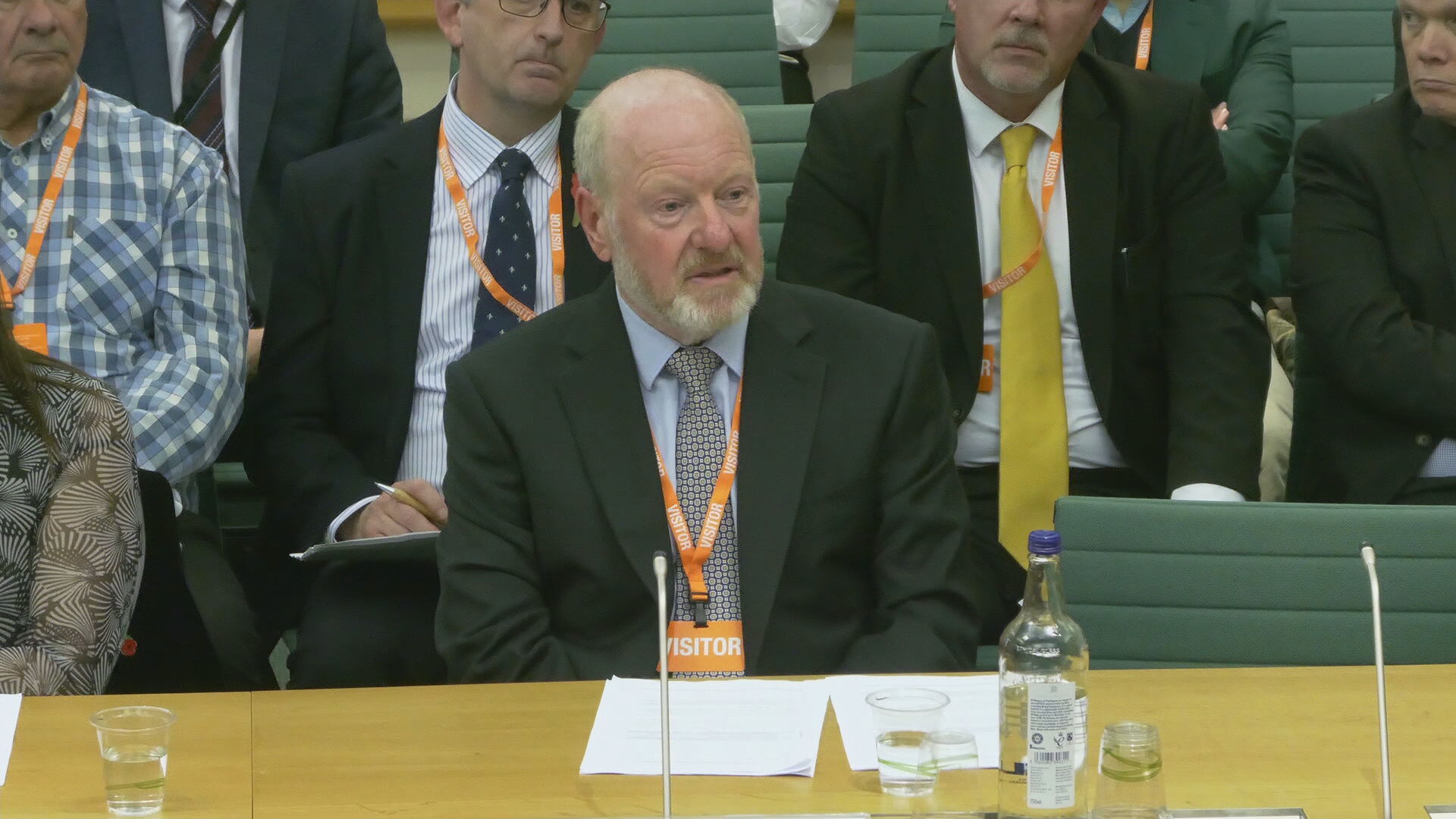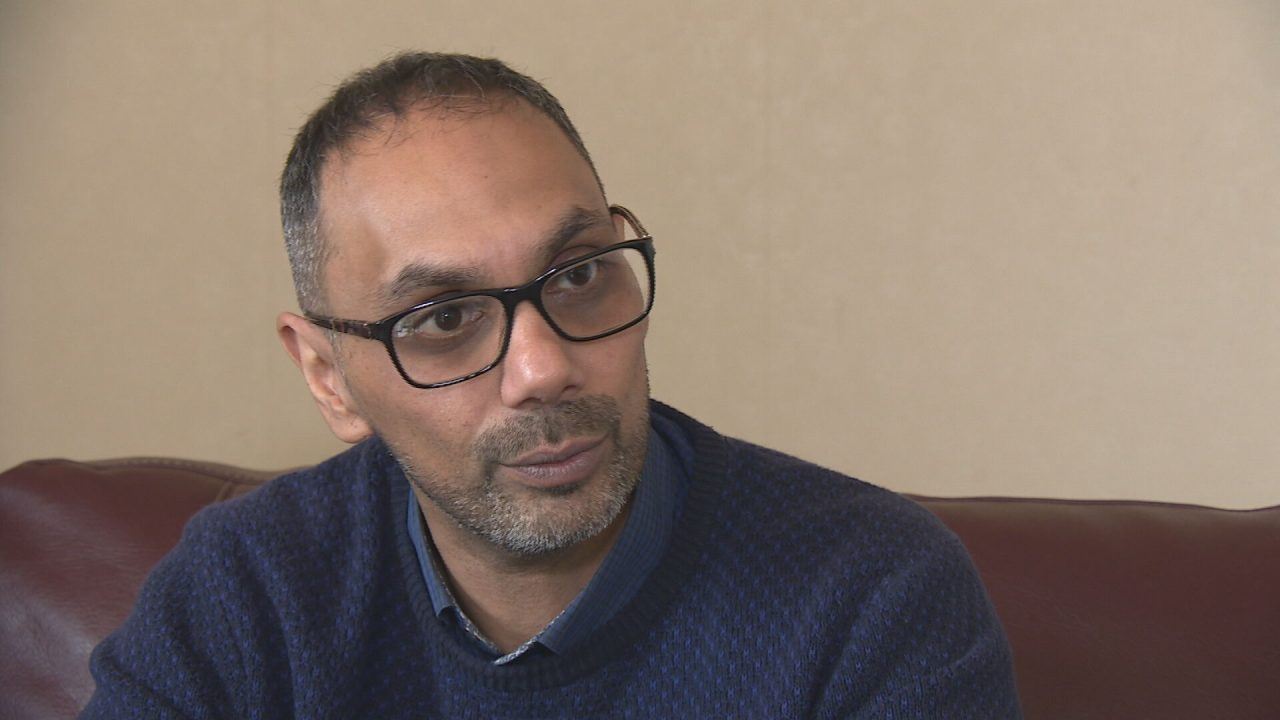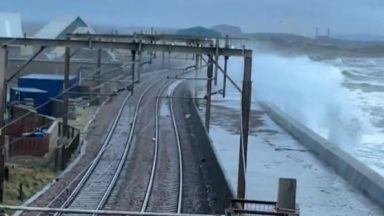A man who took the blame for stealing £35,000 from the Post Office to protect his mother when the money went missing says victims have been “damaged to the point of no return” by the Horizon scandal.
Ravinder Naga was ordered to complete 300 hours of community service and pay compensation in 2010 after confessing to stealing money from the Post Office where his mother worked in Greenock, Inverclyde.
Ravinder, from Port Glasgow – who had his conviction overturned in August – says it’s wrong that victims of the faulty Horizon software must now “go begging” for financial redress.
Mr Naga told STV News: “It was overwhelming. It brought me to tears for a second. The relief was washing over me.”
The business owner says he still feels the “stigma” of his conviction even though it has been overturned.
“Mud sticks, and people don’t care when you’re vindicated. That’s the truth of it,” he said.
“People are going to be quicker to make out other stories and conspiracies. That’s the world we live in right now.
“I’ve had to carry it, and I’m going to have to keep carrying it. It’s mentally exhausting to have to fight this criminal case.”
In 2022, Ravinder requested a review of his conviction and sentence.
The Scottish Cases Review Commission referred it to the High Court, saying Mr Naga had “pled guilty in circumstances that were or could be said to be, clearly prejudicial to him”.
His conviction was quashed by appeal judges on August 22, court officials said.
 STV News
STV NewsMore than 700 Post Office branch managers around the UK, including up to 100 in Scotland, were prosecuted between 1999 and 2015 after faulty Horizon accounting software made it look as though money was missing from their shops, with many convictions subsequently being overturned.
Legislation exonerating subpostmasters in Scotland wrongly convicted as part of the Post Office Horizon scandal came into force in June after a law doing so for subpostmasters in England and Wales was introduced earlier this year.
Mr Naga said his mum was paying to cover small shortfalls in their accounts until she came to him for help after being landed with an unexplained discrepancy of £35,000.
He said he chose to take the blame as a “stalling tactic” to protect her.
“I saw the panic on her face – I never saw my mum panic. She’s always worked and knows how to deal with people, she doesn’t get thrown easily.
“I said no matter what happens, tell them it was me, and I’ll deal with it.
“The way I looked at it, my mum is not a thief. [I thought] ‘It’s going to have to figure itself out. There is going to have to be some sort of resolution, a logical, rational explanation of where this money has gone.’ Then it wasn’t.”
He described a “culture of fear” at the Post Office.
“Their employees were scared,” he said. “If they come accuse you of stuff, and the accusations are going to lead to criminal convictions, to losing everything and having to answer to the wider public. I don’t know how you deal with that.
“They bullied my mum and everybody along the way to make the shortfall back.”
He added: “It was the Post Office. It was supposed to be respectable. It had a name.
“The knock-on effect of that was not only did we lose our income, you’re branded for robbing the people who needed income support who don’t have money to be stolen from – the people who relied on you.”
Mr Naga believes if he had not taken the blame, that his mum would not have survived a potential prison sentence.
He said the Post Office was where she shared many of her last moments with his dad, who died in 1999 aged 46.
“She said ‘I’m going to fall down any day, I can’t be dealing with this anymore,” he said.
“My mum’s businesses were her life’s work. Her businesses were her kids. To me, they took her kids.
“That was her last remaining link to my dad. That’s where they spent the most time together. Their relationships were in those businesses.”
Mr Naga said it is wrong that victims are forced to “beg” for compensation they are owed from the government.
“‘Either you take the figure we want to give you, or you come and beg.’ They’re even throwing the fear factor in; if you don’t take what we’re offering, and we don’t think the figure you put forward is right, you may get less.
“It’s the mind games. They are still bullying victims.
“We need to know it is being regulated to stop it happening in future. People have died, and nobody will be held accountable for that. It doesn’t matter how sharp the sword of justice is if the hand holding it has no power.
“You want to offer those people’s families money for their death; people driven to suicide. I can only imagine the despair to get to that point, being so low you want to leave your family behind.
“The devastation – what is the cost of that? I want to see what they think the price of human life is.”
“You have dam
It comes after Prime Minister Keir Starmer responded to Sir Alan Bates’ claims that he had not answered his requests for help with settling redress claims for Horizon victims.
 STV News
STV NewsThe lead campaigner and former subpostmaster told the Business and Trade Committee’s short inquiry into securing “fast and fair redress” on Tuesday that he wrote to Starmer urging him to help set a deadline of March next year for the Department for Business and Trade (DBT) to sort all redress claims.
Sir Alan was representing claimants from the 555 subpostmasters who took the Post Office to the High Court between 2017 and 2019 – also known as the GLO scheme.
He told MPs that 70 of the GLO scheme claimants have died while compensation is being sorted out, with others now “well into their 80s… that are still suffering”.
The Prime Minister’s official spokesman said: “It was obviously right that we took the time to consider the issues raised in the letter to the Prime Minister, consider our response, make sure it was accurate and substantial and obviously we engaged with relevant departments to ensure that the Prime Minister’s response was as full as possible.
“I think that response was issued earlier today. On the substance of the issue, the Government is committed to getting redress to those affected as quickly as possible and is doing all it can to increase the pace of redress across all schemes.”
The spokesman added: “What we don’t want to do is set an arbitrary cut-off date, which could result in some claimants missing the deadline. We obviously don’t want to put pressure on claimants and put them off contesting their claims.
“But each postmaster eligible for the GLO scheme should receive substantial redress by the end of March, and we are doing everything we can to achieve that goal.
“As of October 31, approximately £438m has been paid to over 3,100 claimants across the four schemes.”
A Department for Business and Trade spokesman said: “We recognise that for Postmasters like Ravinder who have had to endure hardships like this no amount of compensation will ever be enough, and that they have waited too long to receive redress.
“At the end of September, approximately £363m has been paid to over 2,900 claimants.”
A Post Office spokesperson said: “We apologise unreservedly for the suffering caused by Post Office’s past actions. Post Office today is doing all we can to pay redress quickly and to put things right, as far as that can ever be possible.”
Follow STV News on WhatsApp
Scan the QR code on your mobile device for all the latest news from around the country



























